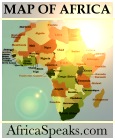The U.S. Admits Sponsoring Opposition in Zimbabwe
Posted: Thursday, April 5, 2007The U.S. acknowledges sponsorship of public events in Zimbabwe aimes to undermine the President
The U.S. State Department acknowledged that sponsorship of public events in Zimbabwe had an aim to undermine the government of President Robert Mugabe. In it annual report on supporting democracy worldwide, the department said its strategy for Zimbabwe also included steps to "support persons who criticized the government."
Supporting Human Rights and Democracy:
The U.S. Record 2005 - 2006
On-The-Record Briefing on the Release of the Annual Report, "Supporting Human Rights and Democracy: The U.S. Record - 2006"
Abstract:
QUESTION: Yeah, can I go to -- I just want to go to Zimbabwe for a second. In this it says that the United States sponsored public events in Zimbabwe that presented economic and social analyses, discrediting the government's excuses for its failed policies. It also says that the United States continued to support the efforts of political opposition, the media, civil society, to create and defend democratic space and to support -- the last bit -- to support persons who criticize the government.
Now, granted, I've just given a cursory reading to the Zimbabwe and other -- the reports on other countries with which the United States has full diplomatic relations. The ones I looked at were Belarus, Syria, Vietnam and Eritrea. There may be more. Cuba, obviously, without full diplomatic relations, doesn't count.
ASSISTANT SECRETARY LOWENKRON: Sure.
QUESTION: My question is this: It doesn't appear that this kind of -- that these kind of things, i.e., discrediting the government's excuses for failed policies and support -- overt support for people who are critical of the government, happened, at least is being reported for these other countries. And my question is this: President Mugabe has often talked about how he thinks the West, the United States and Britain in particular, are trying to -- are trying for regime change in Zimbabwe, and this is exactly what this appears to look like, what you've acknowledged doing through your programs in Zimbabwe. And I'm just wondering, is it the United States -- does the United States believe that it's its responsibility to discredit the government's excuses -- the government and to openly support people who criticize the government? And if it is, which is what you're saying, why is Mugabe wrong when he says that you're trying for regime change?
ASSISTANT SECRETARY LOWENKRON: Well, first of all, I would say that your analysis of the report is a bit cursory because the fact of the matter is, whether it's Eritrea -- we've spoken out about the problems in Eritrea and the deteriorating human rights situation in Eritrea -- we are very clear, very public in terms of what was happening in Belarus. So it is not a matter of the West or the United States or several countries deciding to single out Mugabe and what's happening in Zimbabwe.
What I would like for the Zimbabwean people is something very, very simple: Give them a level playing field -- let them compete openly, let them compete fairly, let them compete transparently, let them compete freely -- so President Mugabe could stand there and say these are my policies and let the people of Zimbabwe decide on whether or not those are the policies that they want.
When you have a country which is now at 1600 percent inflation and rising, when you have in which economic policy consists of, "I hereby declare inflation illegal," when you have a country where when two people want to get together and have a discussion that's called a civil -- that's called a meeting and they had to have prior approval for, when you have a country in which individuals are protesting peacefully and they're clubbed, one almost to death, then I think it's the responsibility not only of the United States, but all countries, including southern Africa, including the African Union and including those international organizations, to stand up and ask how much longer are we going to sit passively by and allow this to continue? This gets back to my previous point which is people in Zimbabwe need to know that there are people outside Zimbabwe that care about their future.
QUESTION: Right. But the other countries that you -- okay, let's talk about Eritrea and Belarus -- does not say that the United States sponsored events at which the government was -- that attempted to discredit the government and does not say that they supported people -- overtly supported people who criticize the government. That may be because there aren't any opposition figures around in Belarus that you can support or in Eritrea. And if that's the case, which I assume it is, doesn't the fact that there are people to support in Zimbabwe show that there is some kind of -- that the situation may be not as bad as what you're saying? And believe me, I'm not trying to defend Mugabe, I just find it very interesting that this report says that the U.S. is openly sponsoring events at which it tries to discredit the government.
ASSISTANT SECRETARY LOWENKRON: I'm a little puzzled by your question. I think the implication is that things are better in Zimbabwe than in Eritrea --
QUESTION: No --
ASSISTANT SECRETARY LOWENKRON: -- or in Belarus.
QUESTION: No, no, no. There's no implication. It's just that there appear to be people in Zimbabwe who you can support, who you -- people who criticize the government who can be supported. I would suggest -- I think that in Eritrea there isn't anyone out there that you can in Eritrea who can --
ASSISTANT SECRETARY LOWENKRON: Yeah. Many of their organizations have been thrown out and many of them have been repressed. It's the same thing in Belarus. But the fact of the matter is just like there's not one size that fits all in terms of how do you advance democracy, there's not one size fits all in terms of saying these are all bad.
QUESTION: Well, okay.
ASSISTANT SECRETARY LOWENKRON: The issue that the way that we treat these countries and my conversations with the Secretary is, "tell me where the trajectory is." The trajectory in Belarus has been bad for a while. And when I say we, we and our European allies have been trying our best to try to maintain that sliver of civil society and that sliver of openness within Belarus. I don't think anybody can debate that the situation in Zimbabwe is deteriorating significantly and rapidly.
QUESTION: Well, is it the -- are these things mentioned in here part of a U.S. policy to try and encourage or promote regime change in Zimbabwe?
ASSISTANT SECRETARY LOWENKRON: U.S. policy in Zimbabwe is to promote a level playing field and support fundamental human rights. Let the people decide the future of Zimbabwe. The future of Zimbabwe is not going to be decided in any program that I run or anybody else in the United States runs.
QUESTION: (Inaudible) Al Jazeera. Mr. Lowenkron, there's a wide consensus among the international community and human rights organization that Guantanamo Bay detention center exists in defiance of the international law and human rights standards. Even Defense Secretary Robert Gates raised some concerns. And as you may know, Al Jazeera cameraman Sami Haj has been detained there for over five years now with no charges. So my question is, first, do you think that the whole issue of Guantanamo Bay undermines your efforts highlighted in this report to support human rights abroad? And from your own perspective, do you think that the detention of Sami Haj for so long with no charges violates his human rights?
ASSISTANT SECRETARY LOWENKRON: Let me say in the context of Guantanamo because I do address this. And if you take a look at the preface to this year's annual human rights report which we rolled out last month, we acknowledged at the outset that there are questions around the globe about our own human rights record. When I have talked about the promotion of democracy and the protection of human rights, what I've said is when people have said you think that democracy is the perfect system for all of these and my answer has always been, the strength of democracy, it's not that it is infallible but that it is that it is accountable. And then I highlight the issue of the press, I highlight the issue of the Congress and legislation. I highlight the issue of the courts, the independence of the courts. These are the essential elements that make democracy what it is. These are called self-corrective mechanisms.
I can tell you that in all of my travels and all the people that I've talked to and the people that we've tried to help, the issue of Guantanamo, the issue of the American standing in the world does not come up. The issue always comes up in the context of what can you do to help us, in terms of this crisis, what can you do in the context of Darfur, for example. What can you do in the context of Burma.
On the other issues related to Guantanamo, I would ask you to refer your questions to our legal counselor, John Bellinger as well as to the Defense Department.
QUESTION: Yeah, but I have a follow-up on the question.
ASSISTANT SECRETARY LOWENKRON: Which is?
QUESTION: But do you think that your efforts to promote human rights will be better off if you closed Guantanamo or it doesn't matter actually?
Email: zimbabwecrisis@yahoo.com
Visit: Zimbabwe WatchPrinter friendly version
Send page by E-Mail

Previous Page | Zimbabwe Watch | Historical Views | Home
NOTICE: All articles are the copyright property of the writers. In accordance with Title 17 U.S.C., section 107, some material on this site is provided without permission from the copyright owner, only for purposes of criticism, comment, scholarship and research under the "fair use" provisions of federal copyright laws. Visit: http://www.law.cornell.edu/uscode/17/107.shtml for more details. If you wish to use copyrighted material from this site for purposes of your own that go beyond 'fair use', you must obtain permission from the copyright owner.










